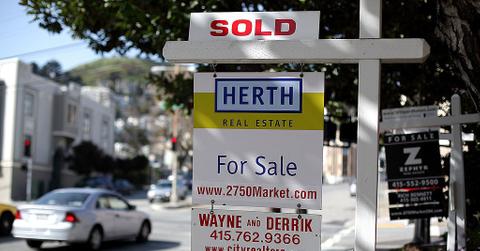Here’s What Happens If You Back Out of a Home Purchase
When a prospective homebuyer backs out of a purchase agreement, a cancellation ensues. Here’s what really happens if you change your mind.
July 12 2022, Published 9:50 a.m. ET
According to recent Redfin data, American prospective homebuyers are backing out of contracts at the highest rate since the COVID-19 pandemic began. This is a sign of a housing market slowdown, but it has its own implications.
As for what happens when you back out of a home purchase, the outcome depends on your contract and the terms you have agreed to. Here’s what to know before backing out.
In June, 15 percent of home sale agreements fell apart.
Homeowner hopefuls canceled nearly 15 percent of home sale agreements in June, according to recent data from real estate brokerage Redfin. This is up from the 11 percent of home sale agreements that fell apart this time last year.
The last time cancellations were this high was in early 2020 when the pandemic first began to rage across the world. There was a brief period of time when the housing market went quiet as uncertainty lingered. Shortly thereafter, the housing market — and subsequently home prices — skyrocketed.
There’s a reason homebuyers are canceling home purchases. Some are put off by inflation while others don’t want to pay higher mortgage interest rates. Others no longer qualify for the mortgage they were previously banking on given updated interest rates and increased amortization costs. Even home builders are seeing more cancellations.
Here's what to expect if you back out of a home purchase.
Backing out of a home purchase could potentially lead to you losing some or all of your deposit, depending on the terms of your contract. Most offers include an earnest money deposit (good faith deposit) that solidifies your interest in the home.
The earnest money deposit is a portion of the down payment that serves as a promise to the seller that you will proceed with the purchase. Meanwhile, the down payment as a whole is a promise to the lender you’ll commit to your mortgage.
You may or may not get your earnest money deposit back. If you cancel before a specified deadline or the home, real estate agent, or lender fails to meet certain contingencies, you may be able to get your money back in full.
Certain contingencies could help you get your money back.
In your home purchase agreement, you can specify a grace period to review documents before being penalized for backing out. Additionally, you’ll want to include a home inspection to ensure you can back out if there are major problems with the home.
You will also want to include a contingency that says you can back out without penalty if the lender fails to finance your mortgage.
If your sale agreement contains any of these contingencies, you may be able to make out scotch free.
You may have to pay liquidated damages.
Most real estate contracts specify liquidated damages or the maximum amount of money a seller can keep from a buyer if the buyer breaches the contract and backs out.
In the worst case scenario, a seller could sue the buyer for specific performances, though this is extremely uncommon.


